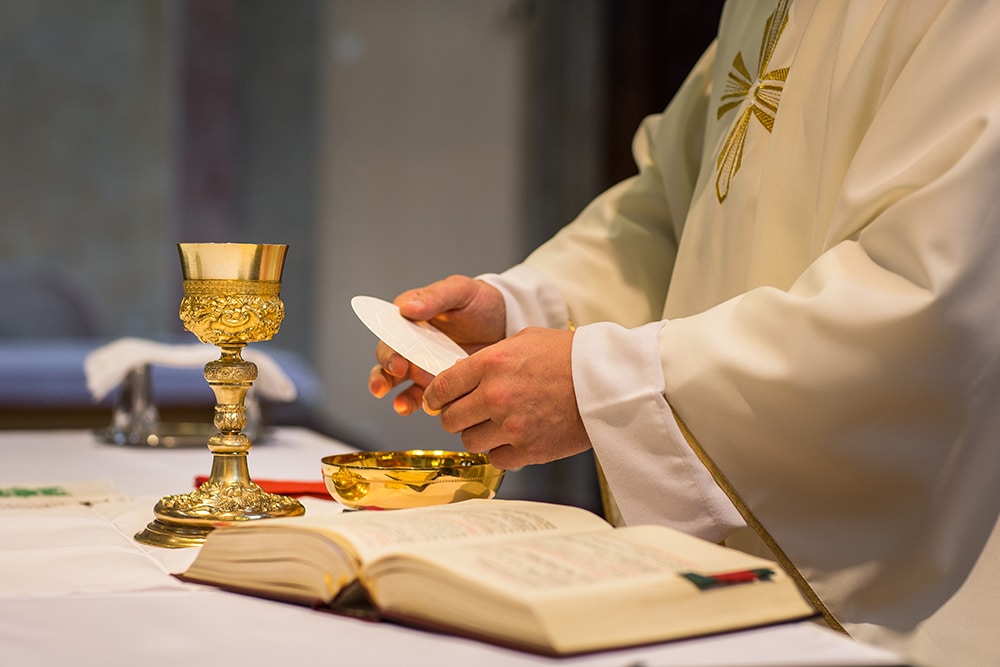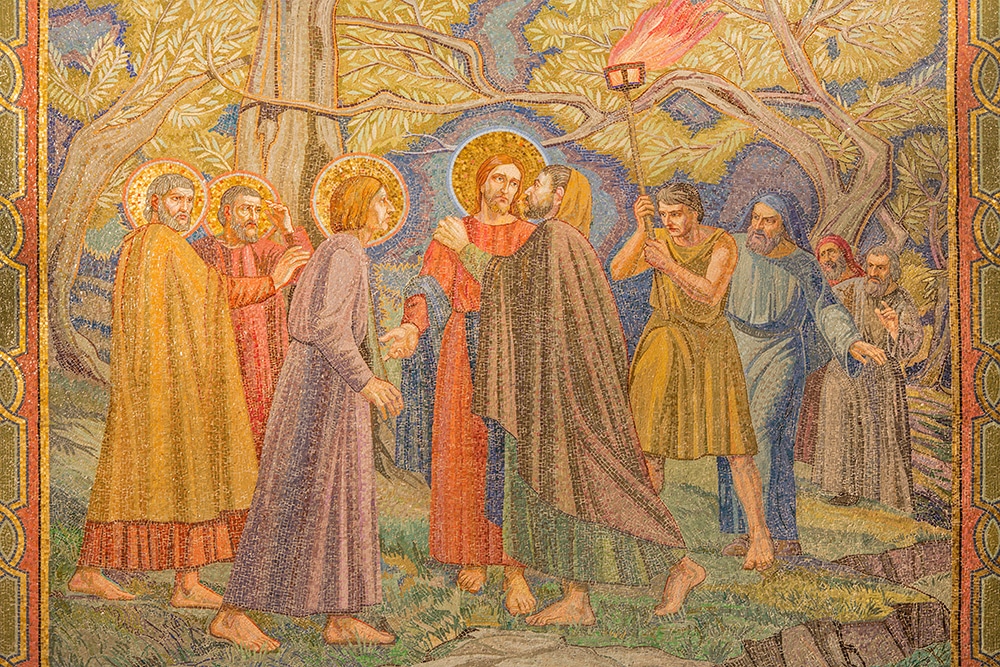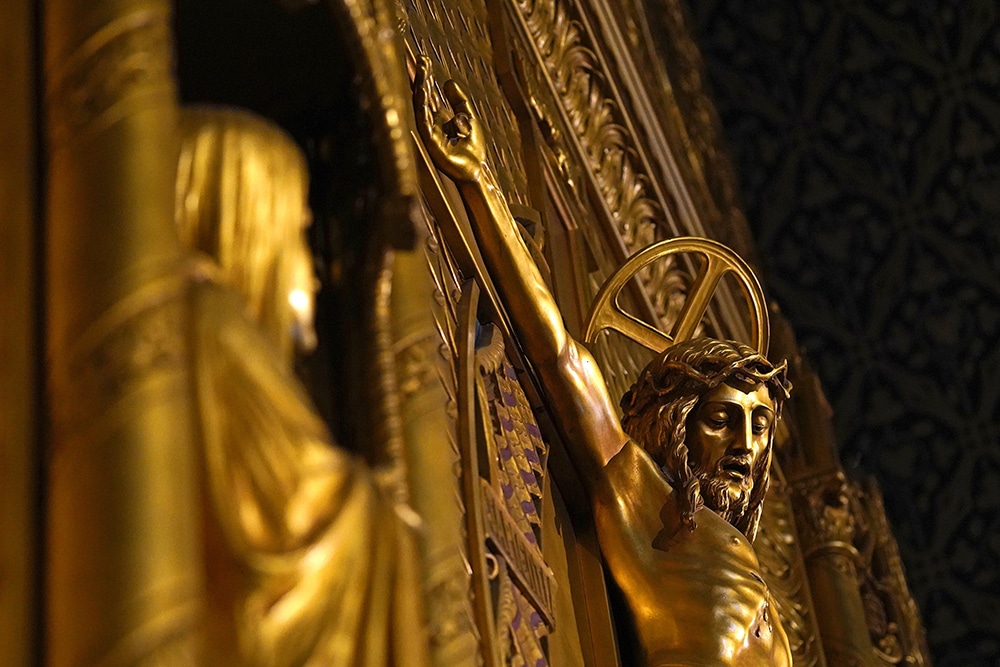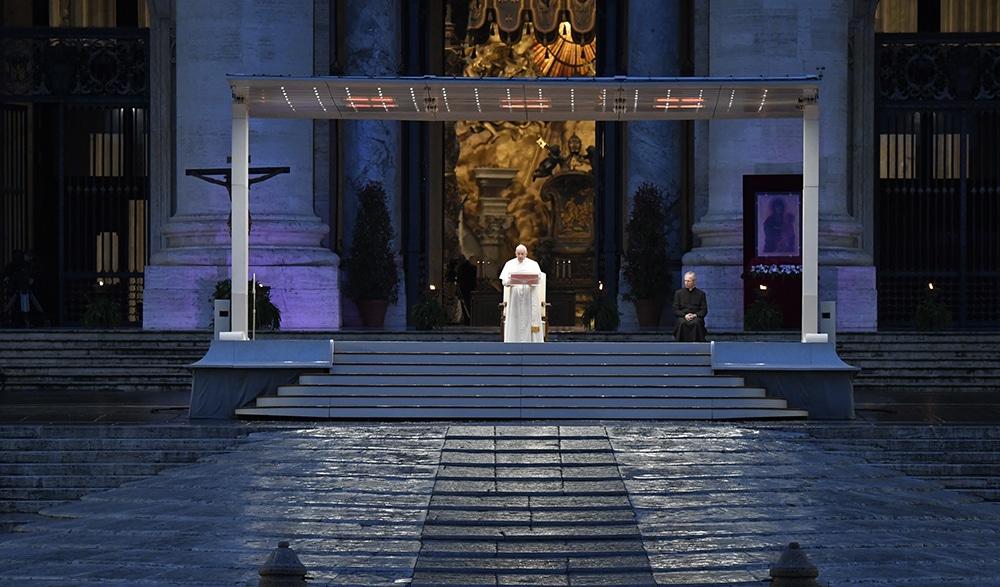 “The Word became flesh and made his dwelling among us” (Jn 1:14). The Word — the logos or meaning of the world, became flesh. The reason for all existence, for all that is, dwelt among men and women. A God of love and mercy, of justice and power, entered history as flesh.
“The Word became flesh and made his dwelling among us” (Jn 1:14). The Word — the logos or meaning of the world, became flesh. The reason for all existence, for all that is, dwelt among men and women. A God of love and mercy, of justice and power, entered history as flesh.
Hebrews sings the praises of the enfleshment of the Word. Because Jesus is flesh, he can mediate salvation for his brothers and sisters in the flesh: “In the days when Christ Jesus was in the flesh, he offered prayers and supplications with loud cries and tears” (Heb 5:7).
Notice that Jesus is not heard by the Father because of pious, interior thoughts disconnected from the body. It is the prayers and supplications of a flesh and blood creature, who gives his body over to the Father as a sacrifice of love. His loud cries and tears are the manifestation of his reverence.
| March 21 – Fifth Sunday in Lent |
|---|
|
Jer 31:31-34
Ps 51:3-4, 12-13, 14-15
Heb 5:7-9
Jn 12:20-33
|
Hebrews further claims that the Son learned obedience from the act of suffering. It was suffering that made him perfect, suffering that allowed him to become a source of salvation for every man and woman who obeys Our Lord.
But what is the obedience to which Our Lord calls us?
We turn once more to the Gospel of John. The reader is no longer swimming in the heady contemplation of the enfleshment of the Word but immersed in the drama of the final hours of Jesus’ life.
Jesus announces that his hour has come to be glorified, when he will be raised up on the tree of life for every man and woman to behold. And as this hour arrives, he speaks not just to the assembled crowd but to us. A grain of wheat must die for new life to come.
This parabolic language is turned on us, the reader or listener of the text: “Whoever loves his life loses it, and whoever hates his life in this world will preserve it for eternal life. Whoever serves me must follow me, and where I am, there also will my servant be” (Jn 12:25-26).
Again, we must be wary of turning this text into an abstraction. Remember what we saw in Hebrews. The Son practices reverence and obedience through the tears and supplications of the flesh. To serve the Son, to lose our life is part of a flesh and blood drama. We follow Jesus in the flesh, in giving our lives as a sacrifice of love in union with the Word who became flesh and dwelt among us.
In the waning days of Lent, we are invited to participate in this new covenant of love in the flesh.
Christ’s very body and blood is given to us every day in the sacrifice of the Eucharist. Obedience to this gift requires that we — flesh and blood creatures — give reverence to the Blessed Sacrament. We should eat and drink this sacrament with delight, letting our lives become an offering of love for the life of the world.
But that is not all. There remain flesh and blood creatures who lament with their whole bodies a poverty that threaten their very existence.
We must give our bodies in service to their own. Their very flesh and blood cry out to the Father, asking to be heard. We have ears to hear, bodies to feed and comfort those who dwell in the shadow of sin and death.
Christ has come in the flesh that our flesh and blood might also become an offering of love.
This is the new covenant of Christ, the beloved Son.
Listen to him.
Timothy P. O’Malley, Ph.D., is the director of education at the McGrath Institute for Church Life at the University of Notre Dame.







